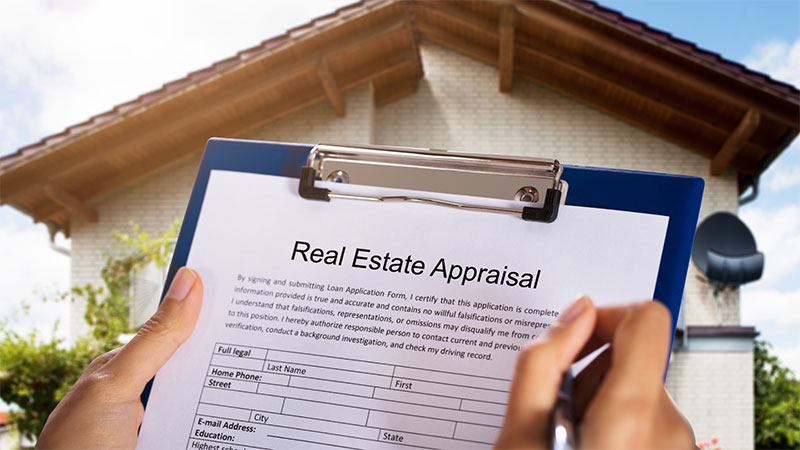Real estate appraisals are a critical component of the real estate industry, yet many people don’t fully understand what they entail. Whether you’re buying or selling a property, understanding the appraisal process is crucial to ensuring that you get the best deal possible. In this blog post, we’ll cover everything you need to know about real estate appraisals – from who conducts them and how they’re conducted to what factors are considered in determining a property’s value. So buckle up, and let’s dive into the world of real estate appraisals!
What is a real estate appraisal?
A real estate appraisal is an unbiased evaluation of a property’s value. It is typically conducted by a licensed professional who has expertise in the local real estate market. The purpose of an appraisal is to determine the fair market value of a property, which is the amount that it would likely sell for on the open market.
The appraiser will look at various factors when evaluating a property, such as its condition, location, size, and amenities. They will also consider recent sales data for similar properties in the area to help determine its value.
Appraisals are typically required when buying or selling a property. Lenders use appraisals to ensure that they’re not lending more money than necessary for a particular property. Appraisals can also be used in legal proceedings, such as divorce cases or tax assessments.
It’s important to note that an appraisal isn’t always accurate – it’s simply one person’s opinion of what the property is worth based on their knowledge and experience. However, it does provide valuable insight into a property’s value and should be taken seriously when making major financial decisions related to real estate transactions.
The purpose of a real estate appraisal
The purpose of a real estate appraisal is to determine the fair market value of a property. This is important for many reasons, including buying and selling properties, refinancing mortgages, and obtaining insurance coverage. The appraiser provides an unbiased assessment of the property’s worth based on its size, location, condition, amenities, and other factors.
When buying or selling a home, an appraisal helps set the price that both parties can agree on. It ensures that sellers don’t overprice their homes while buyers don’t underpay for theirs. Similarly, when refinancing a mortgage loan or applying for insurance coverage on your home or commercial property – lenders and insurers rely heavily on professional real estate appraisals to decide if they should approve your application.
Appraisers use various methods such as comparative sales approach (comparing similar properties in the same area), cost approach (estimating how much it would cost to rebuild) and income approach (for rental properties). In short – getting an accurate real estate appraisal is essential whether you’re buying/selling/refinancing/insuring a property so be sure to choose licensed professionals who follow strict industry standards!
Who conducts a real estate appraisal?
Real estate appraisals are typically conducted by licensed and certified appraisers. These professionals go through extensive training and education to learn about property valuation, real estate markets, and appraisal methodology.
To become an appraiser, one must meet certain educational requirements and pass a state licensing exam. Some states also require additional hours of continuing education to maintain their license.
Appraisers may work independently or for appraisal firms. They provide unbiased opinions of value based on market data, the condition of the property, and other factors that influence its worth.
It’s important to note that appraisers do not represent buyers or sellers in real estate transactions. Their role is strictly to provide an objective assessment of a property’s value.
In some cases, lenders may use automated valuation models (AVMs) instead of traditional appraisals. However, these models can be less accurate than a human appraiser as they rely solely on data input without any physical inspection or analysis of the property’s unique characteristics.
It’s best to rely on a licensed and experienced professional when conducting a real estate appraisal for accuracy and reliability in determining the true value of your property.
How is a real estate appraisal conducted?
When it comes to conducting a real estate appraisal, there are several steps that must be taken in order to ensure accuracy. The first step is for the appraiser to gather information about the property being evaluated. This might include things like square footage, number of bedrooms and bathrooms, age of the home or building, and any recent renovations.
Once this information has been collected, the appraiser will typically conduct a physical inspection of the property. During this inspection, they’ll take note of any features that could impact its value – such as damage or signs of wear and tear.
After inspecting the property itself, an appraiser will then research comparable properties in the area. These are homes or buildings with similar characteristics that have recently sold or are currently on the market for sale. By comparing these properties to the one being appraised, an accurate valuation can be determined.
All of this information is compiled into a formal report which outlines how much your home or building is worth based on current market trends and other factors affecting local real estate prices.
What factors are considered in a real estate appraisal?
A real estate appraisal takes into account various factors to determine the value of a property. The appraiser evaluates the condition, location, size and age of the property, as well as any recent renovations or upgrades. Additionally, they will consider comparable sales in the area.
The condition of a property is important because it affects how much maintenance may be required in the future. A well-maintained home will have a higher value than one that requires extensive repairs.
Location also plays an important role in determining value. Properties located near desirable amenities such as schools, shopping centers or parks tend to have higher values than those farther away.
Size and age of a property are obvious factors that contribute to its appraisal value. A larger and newer home generally receives a higher valuation than an older or smaller one.
Recent upgrades or renovations can add significant value to a property because they improve its functionality and aesthetic appeal. The appraiser considers these improvements when evaluating the overall worth of the home.
Comparable sales in the area provide insight into what other similar properties have recently sold for and help establish market trends which greatly influence appraisal values.
How often do appraisals need to be conducted?
Real estate appraisals are an important part of the real estate industry. They provide accurate and unbiased valuations of properties, which helps buyers, sellers, and lenders make informed decisions. However, many people are unsure about how often they need to have their property appraised.
The frequency of real estate appraisals depends on several factors. For homeowners who aren’t planning on selling their property or using it as collateral for a loan, they don’t need to get regular appraisals. Instead, they can wait until they want to refinance or sell their home.
On the other hand, if you’re looking to buy a new home or investment property, getting an appraisal is crucial before making any substantial purchases. This ensures that you’re paying fair market value for the property and not overpaying.
For those who use their homes as collateral for loans such as mortgages or HELOCs (Home Equity Line Of Credit), it’s common practice from lenders require periodic appraisals every few years depending on local regulations.
In summary, there isn’t one set answer when it comes to how often you should have your property appraised because it varies based on individual circumstances like financing needs or buying intentions rather than location size etc.
Conclusion
Real estate appraisals are a critical component of the real estate industry, providing buyers, sellers, and lenders with valuable insights into a property’s worth. By understanding what goes into an appraisal and who conducts it, you can feel more confident in the buying or selling process.
Whether you’re looking to purchase your dream home or sell your existing property, obtaining an accurate appraisal is crucial for determining its true value. With this guide in mind, you now have all the information necessary to navigate this complex process successfully.
Always remember that while appraisals may seem like just another step in the buying or selling process, they can make all the difference when it comes to making informed decisions about real estate investments. So be sure to work with qualified professionals and gather as much information as possible before moving forward.



